Weekly Menus

Discovery has made the commitment to ensure our offerings for children in all components of our day align with our values & what we believe children deserve. After research, community engagement, and connecting with dietitians, the decision that needed to be made was clear. We are committed to providing healthy, plant-based meals & snacks with a focus on nutrition, enjoyment & sustainability.
One hot lunch and 2 snacks (mid-morning & mid-afternoon) will be provided daily for all children We provide plant-based milk at lunch and water throughout the day.
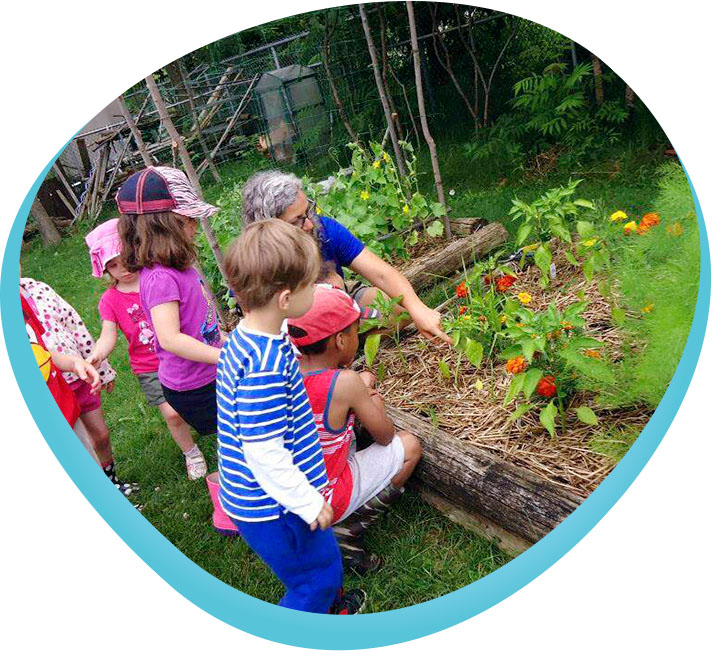
Menus are posted on our parent information boards and on our website. With the exception of special occasions, junk foods will not be served. A note from your family doctor or allergist may be required for us to accommodate allergies and special diets. There may be an additional charge for special diets
We are a nut/peanut/dairy/egg/fish free facility. Please do not bring any of these food or beverage items into the facility.
When children are in our care, Discovery is responsible for ensuring children receive 50% of their required nutrients from morning snack, lunch, and afternoon snack.
Rather than basing our menu on food group requirements (the old Canada's food guide-which does not take into account nutrient density), we have planned our menus based on nutrient density for optimal brain development and lifelong brain and body wellness.
This aligns with our desires to consider the holistic wellness of children and also aligns with our desires for food literacy and culture to be more evident in our programs. This means our menu goes beyond food groups and ensures that children get all the micronutrients and macronutrients which their bodies need to thrive.
Our menus were created by our chef Julie Nguyen, Karen Eilersen, and in consultation with the University of Guelph Child Care Centre (also plant-based menu), and registered dietitian Pamela Fergusson RD, PhD. Karen has completed the Plant-Based Nutrition Certificate Course from ECornell University.
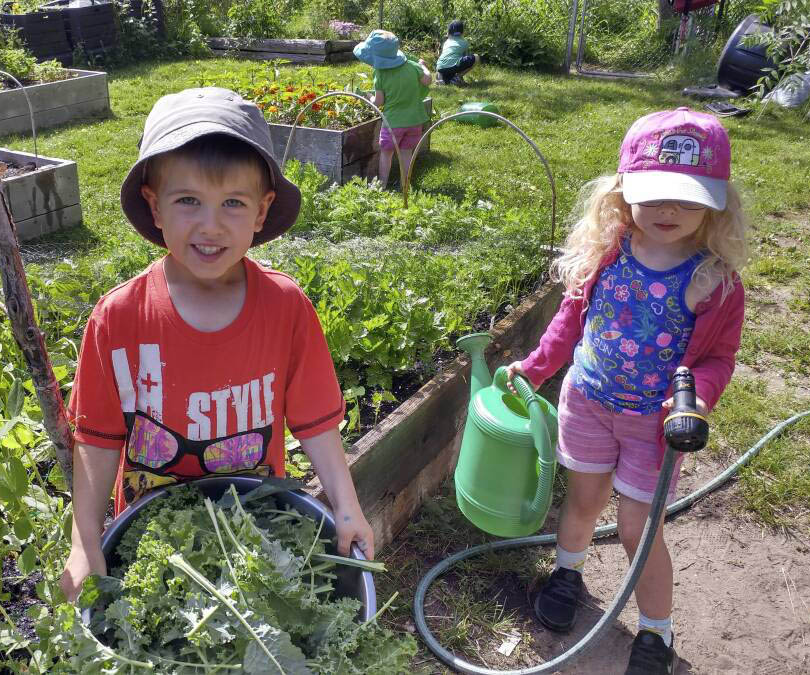
Living Well with Children

We believe children deserve programs that recognize and respond to the needs of our time. We believe we have a responsibility to ensure our decisions in all components of our programs align with the world they are inheriting.
Sustainability
Discovery is committed to sustainable approaches and practices in our ways of being with children, families, and the natural world. We are committed to ensuring our impact on the environment is minimal and we engage in thoughtful, sustainable practices. Our Food consumption is something that must be considered for the world that these children are inheriting.
Environmental Impact
Discovery Child Care Centre does things a little bit differently than everyone else and we want to celebrate that. Our values of environmental impact are unique to us and we noticed that our food consumption didn't fully align with what we aspire to live into. Rethinking this allows us to live more fully and deeply into our values.
Food as Culture
The practices, attitudes, and beliefs, as well as the networks and institutions surrounding the production, distribution, and consumption of food. Food is something that comes packaged, that is counted and manipulated and overall disconnected from any real meaning. At some point we decided to remove the culture from our food and our health began to suffer. We aim to grow a community understanding that our food culture is as much a part of our personal and societal well-being, as our food is itself.
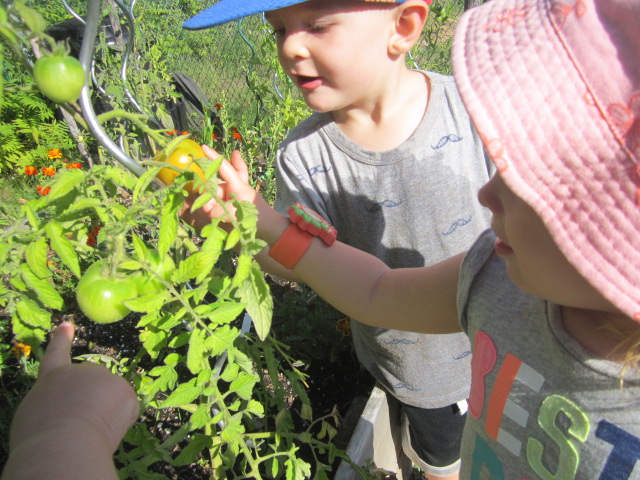
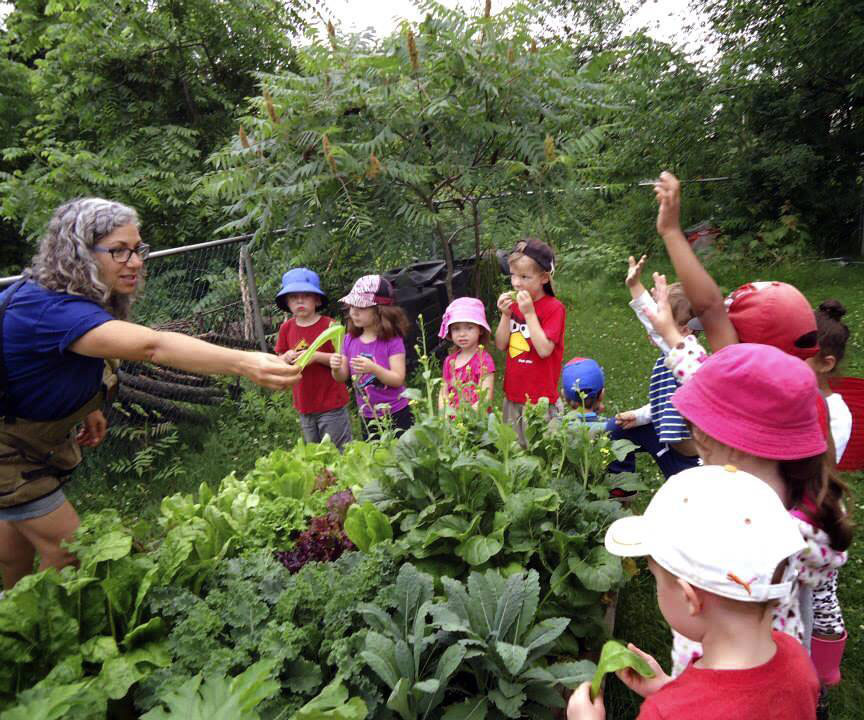
What do Children Deserve?
At Discovery, we have a strong image of children, one that deserves full rights and deserves respect, quality, and valuable experiences. We believe food is a part of this experience. We believe children deserve food experiences that live into the image of a child who is worthy of high-quality interactions, high-quality resources and materials, and culture-building environments and experiences.
Long term Impact for Children's Relationship with Food
Providing opportunities for children to have regular and repeated access to high quality, nutrient-dense foods, will set eating patterns and food relationships for the rest of their life. The goals of child care are to enable children to make healthy food and physical activity choices on a daily basis and provide them with skills to develop healthy eating and activity behaviours for life.
Equity & Universal Design
Universal design is a huge factor in the determination for Discovery to move towards a plant-based menu. We have a growing number of children who have allergies, many coming from dairy and egg. Having all of our children being able to eat the same meals in a stress-free, family-style environment; more closely aligns with what children deserve. This also improves efficiency for the kitchen and improves the health and safety of the children in the centre by removing a vast majority of children's allergens.
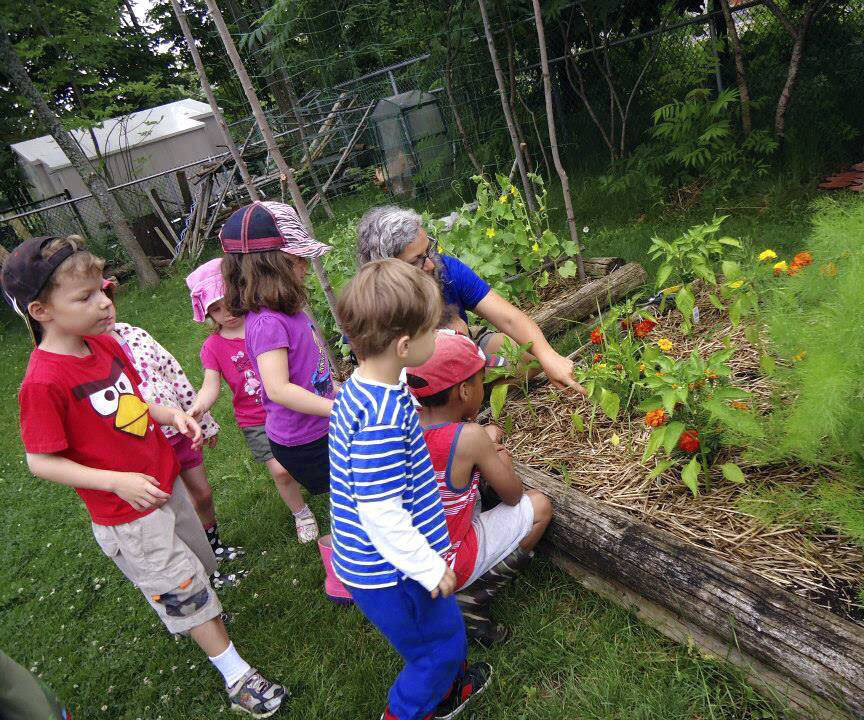
What is a Forest School?
A forest school is an outdoor education model that focuses on using outdoor spaces to help children learn personal, social and technical skills. To put it simply, forest schools take the learning outside.
